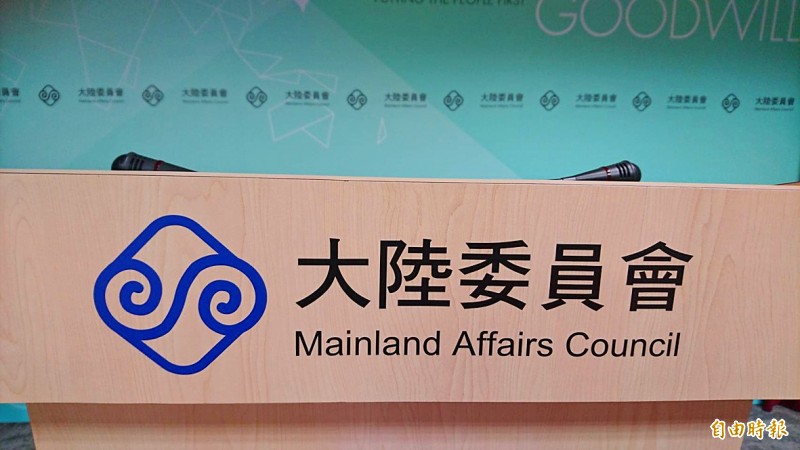《TAIPEI TIMES》 China ‘targeting personal links’

The title and logo of the Mainland Affairs Council are seen on a podium at the council’s Taipei offices in an undated photograph. Photo: Chung Li-hua, Taipei Times
By Chung Li-hua and Jake Chung / Staff reporter, with staff writer
Information warfare by the Chinese Communist Party (CCP) does not stop at the Internet, but also targets people-to-people connections, the Mainland Affairs Council’s (MAC) advisory committee said in a summary of committee proceedings released on Friday.
China uses traditional intelligence gathering, as well as cyberwarfare and cognitive warfare tactics, the summary quoted a committee member as saying.
Most noteworthy is the cognitive aspect, as it could affect actual people-to-people connections, the summary said.
Teaching people to tell actual news apart from fake news is one solution, it said, adding that other options include legal methods — such as issuing heavier fines — or forming local organizations to counter such actions.
The summary quoted committee members as saying that China’s attempts to influence and affect Taiwanese academia and education have been “exquisite.”
China handles all expenses when inviting Taiwanese academics to visit and takes them on tours, the summary said, adding that these acts subtly influence Taiwanese academics’ perception of China.
In other cases, Chinese students in Taiwan have been tasked with gathering information, and subtly influencing the thought and speech of their Taiwanese classmates and lecturers, the summary said.
The government should step up collaboration with Facebook, Twitter and other major social networking sites, and gather information about the actions of Chinese cyberactivists and their cohorts to prevent further cyberattacks, it said.
The government should compile a database of previous incidents for people to reference online, so they can learn to tell actual information apart from fake news, it added.
The Taiwanese intelligence community and other public departments should also have effective countermeasures against cyberattacks, the summary said, adding that the government could consider establishing a warning system akin to the earthquake warning system.
Taiwan must implement measures that limit or control acts that, while not strictly illegal, nonetheless serve to influence others, it said.
The public cannot simply let foreign attacks slide and should consider where to draw the line to protect the nation’s democratic system, the committee added.
新聞來源:TAIPEI TIMES













